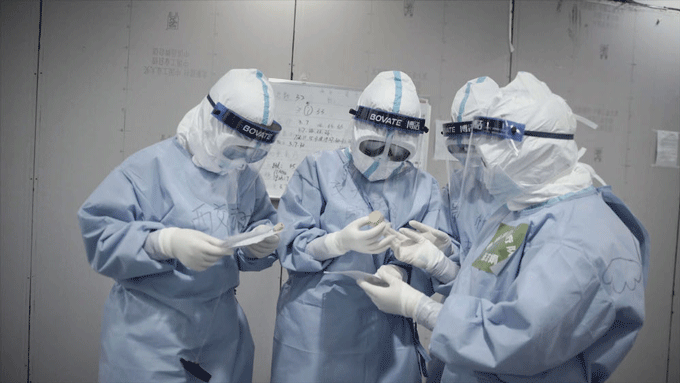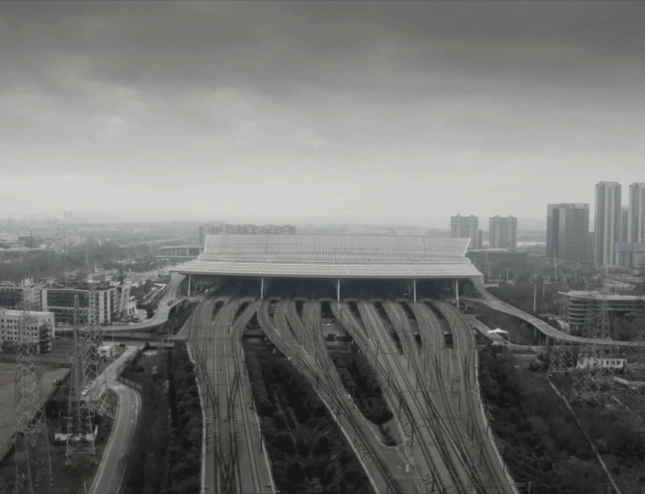Chinese contemporary artist Ai Weiwei has been known for having his finger on the pulse of the political and societal landscape over the course of his career. He’s been openly critical of the Chinese government and its position on human rights, and much of his work has explored government corruption and authoritarianism. Recently he’s turned his practice towards documentary filmmaking, where he can amplify his activist voice more prominently. His first film, Human Flow (2017), documented the global refugee crisis. This August, he’s released his second entitled Coronation. The work documents the coronavirus outbreak in Wuhan, China from the beginning of the city’s lockdown on January 23 until April 8 when restrictions were lifted. The world’s first coronavirus case emerged from Wuhan in December 2019.
Ai’s documentary came together extremely quickly. In just two months, he had gathered all the photographs and footage he needed for the film and in two more months, all editing was complete. The footage was collected from citizens he was corresponding with on the ground in Wuhan, while he directed the film in secret from his residence in the UK. The local Chinese government had restricted any information coming in or out of that region during the lockdown, so Ai had a team of amateur cinematographers illegally filming from inside the city. Coronation is an 85-minute long film that shows the city under crisis, and the images are simultaneously disturbing and stunning.

Overall, the film reveals the Chinese government’s rapid response to the coronavirus outbreak. Almost instantly emergency field hospitals were erected within days, 40,000 medical workers were bused in from all over China, sanitation robots were deployed throughout the city, and residents were locked within their homes. The film provides the audience with a look inside those makeshift hospitals and ICUs and shows how authorities handled diagnosis and treatment. It also explores the private lives of Wuhan residents as they traverse the pandemic and the new restrictions placed upon them. Intimate interviews are scattered throughout the documentary and reveals the fear and frustration patients and their families endure as the Chinese government imposed control on their everyday lives.

Five main characters carry the film, giving a first-hand look into the travails of different citizen’s lives during the lockdown. Among them are a construction worker who is forced to live out of his car as he cannot leave the region, a courier who must make daily deliveries to people stuck inside, a couple traversing various check-points as they attempt to return to their home in Wuhan, and a son navigating the bureaucracy of retrieving his father’s ashes after he succumbed to the virus.
A statement released with the film claims that its aim was to show “the Chinese crisis management and social control machine - through surveillance, ideological brainwashing, and brute determination to control every aspect of society.” The film reveals a draconian approach to handling Wuhan’s society for months under lockdown, but it also highlights how effectively the government eradicated the virus from Wuhan. No new cases have been recorded there since May 2020, and life has since returned to normal.
Ai explains that he made Coronation as a way to gain a better understanding of this new and unfamiliar event and peek into the politics and humanity behind it. He’s always expressed a keen interest at looking critically into the politics of his homeland, and so this deeper look into the Chinese government’s response to this outbreak seemed inevitable. It reveals how that level of authority allowed the country to manage the coronavirus most efficiently. Ai Weiwei once again was able to maneuver a critical and creative look out from behind the sealed doors of China.
Coronation is available for on Vimeo on Demand and Alamo on Demand.
